#Moon Knight vol. 9
Explore tagged Tumblr posts
Text

Variant cover for Moon Knight (Vol. 9/2021), #25 by Scott Forbes.
#Marvel#Marvel comics#Marvel 616#Moon Knight vol. 9#Moon Knight 2021#Moon Knight comics#Moon Knight#Marc Spector#let’s get this other bread#I finally get to post thisss#everyone and their brother has seen this by now but it looks so G O O D#the drape of that cape#the sheer + rhinestones !!!#the sensible shoes#going back to his roots and contemplating that crescent dart like Hamlet contemplates a skull#*chef’s kiss* exquisite
184 notes
·
View notes
Text


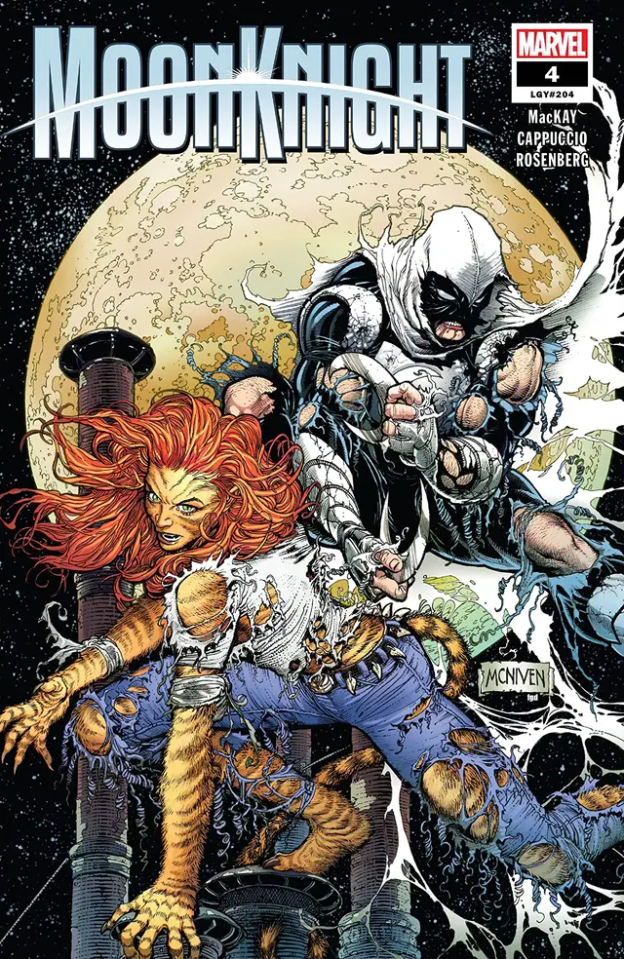

2021's Moon Knight Vol.9 #4 (LGY : #204) cover by Steve McNiven and Frank D'Armata.
#Moon Knight#Tigra#Steve McNiven#Jed MacKay#art#Moon Knight by Jed MacKay and Alessandro Cappuccio#2020s comics#20s comics#20s#cover#marvel comics#marvel#comics#cool cover art#cool comic art#mr knight#midnight mission#fist of khonshu#cover art#process#comic book#comic books#superheroes#urban vigilante#marc spector#Greer Nelson#Marvel Comics of the 2020s#Frank D'Armata#Jed MacKay's Moon Knight#team up
193 notes
·
View notes
Text
Comics Vs Series: Steven stepping in edition
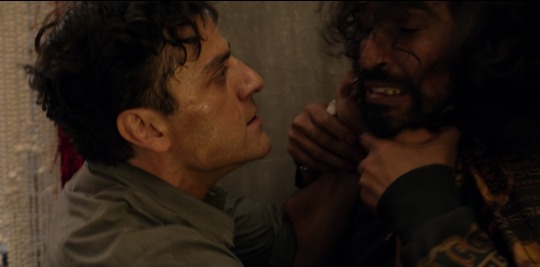
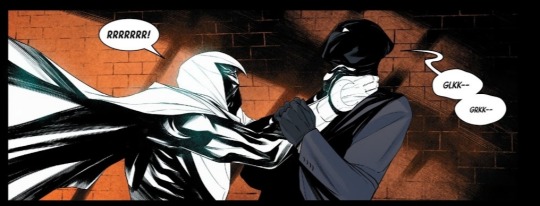
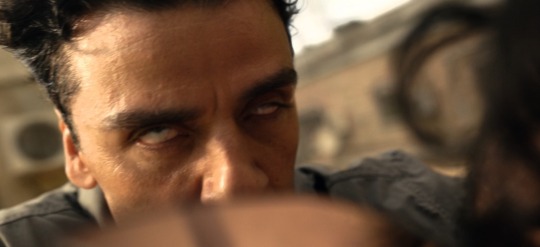

Moon Knight Vol. 9 Issue 12
#you can put the speech bubbles in the series and it will still make sense#moonknight#moon knight comics#moon knight comic#series vs comics#moon knight#moon knight 2022 comic#moon knight 2021 comic#moon knight 2022#marc spector#steven grant#moon knight screen shot#moon knight edit#marc spector edit#moon knight show#moon knight series#moon knight disney+#moon knight system#moon boys#moon knight meta#marvel comics#moon knight 616
530 notes
·
View notes
Text
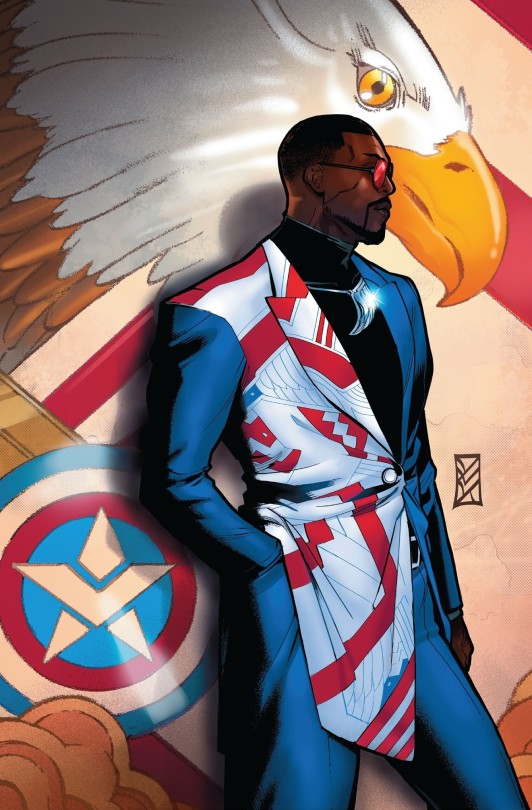
Captain America #750 (2023) by C.F. Villa
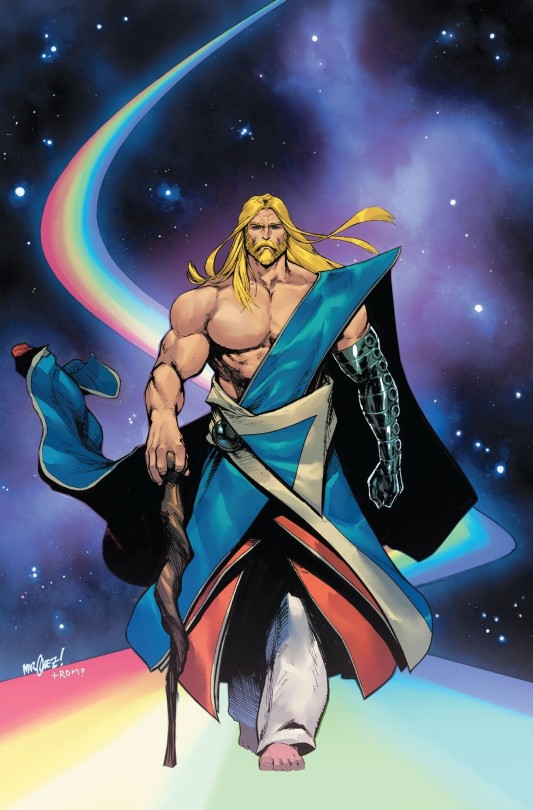
Thor Annual #1 (vol. 6, 2023) by David Marquez
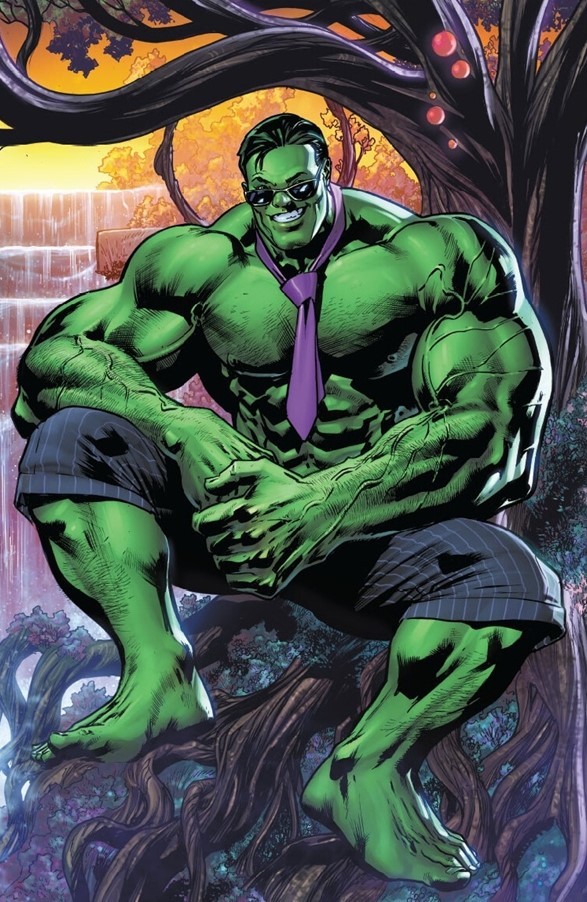
Incredible Hulk #2 (vol. 4, 2023) by Bryan Hitch

Captain Marvel: Dark Tempest #1 (vol. 1, 2023) by Jen Bartel

Black Panther #2 (vol. 9, 2023) by Mateus Manahani

Doctor Strange #5 (vol. 6, 2023) by Dustin Nguyen
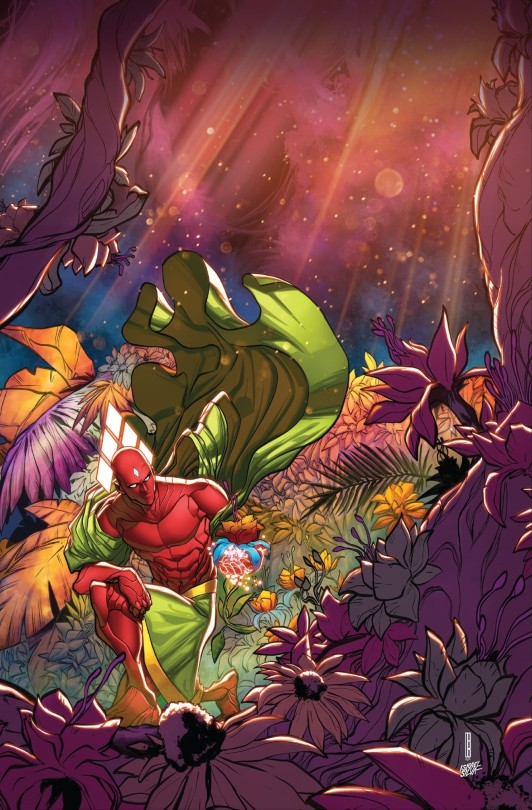
Avengers #3 (vol. 9, 2023) by David Baldeón
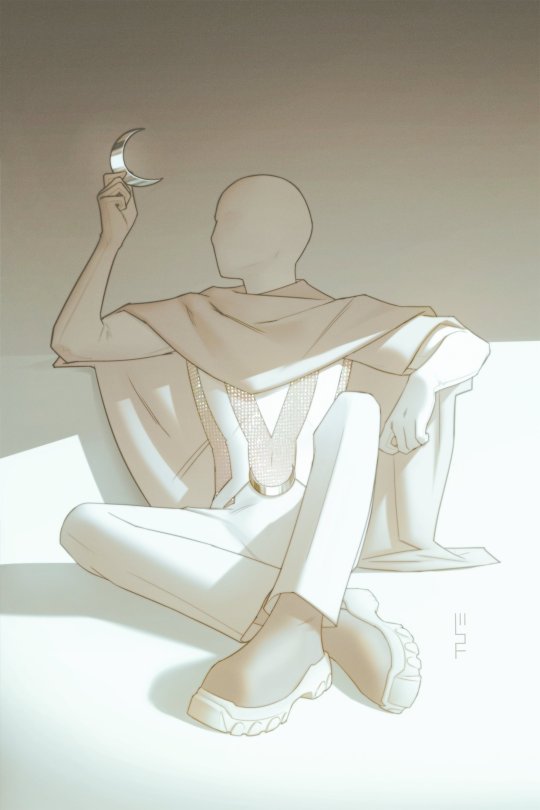
Moon Knight #25 (vol. 9, 2023) by W. Scott Forbes

Amazing Spider-Man #30 (vol. 6, 2023) by Betsy Cola
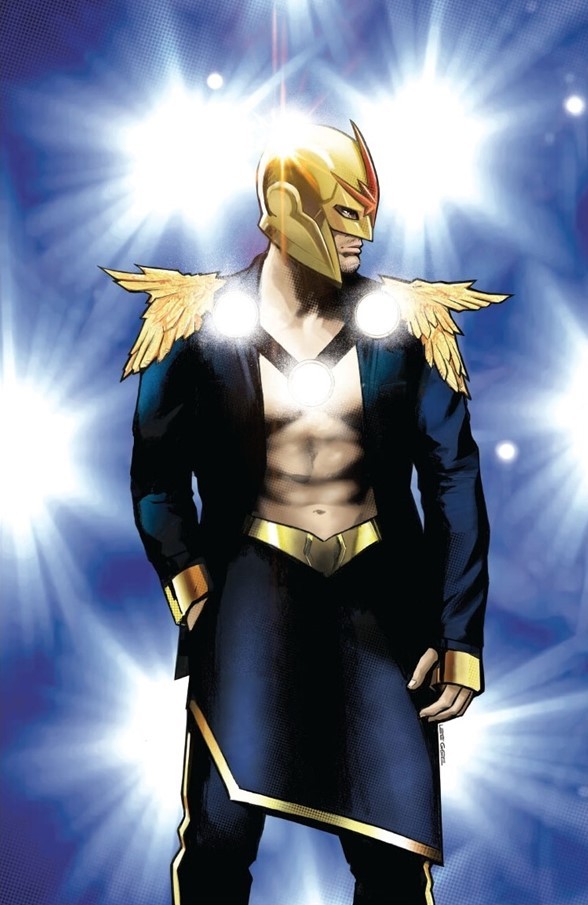
Guardians of the Galaxy #4 (vol. 7, 2023) by Lee Garbett

Ghost Rider #16 (vol. 10, 2023) by Gerald Parel
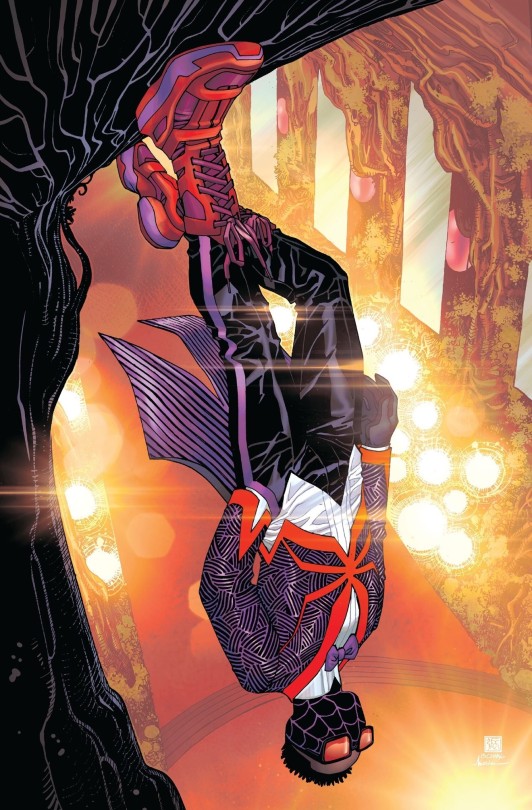
Miles Morales: Spider-Man #8 (vol. 2, 2023) by Bernard Chang
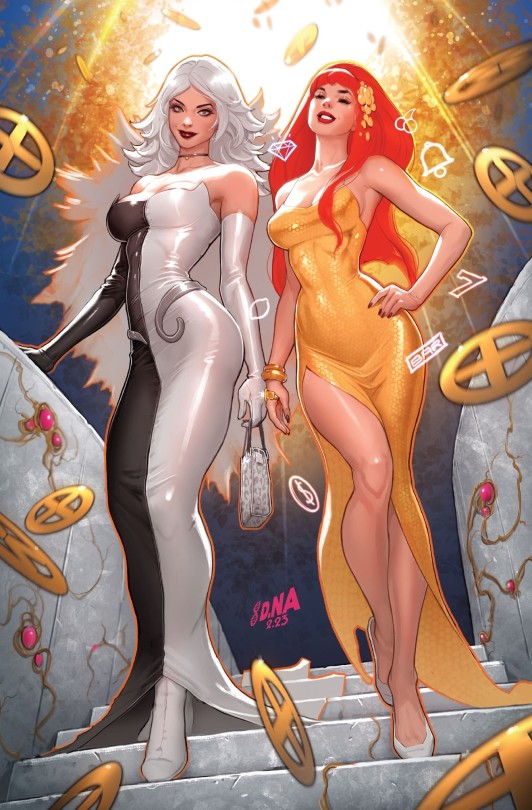
Amazing Spider-Man #29 (vol. 6, 2023) by David Nakayama
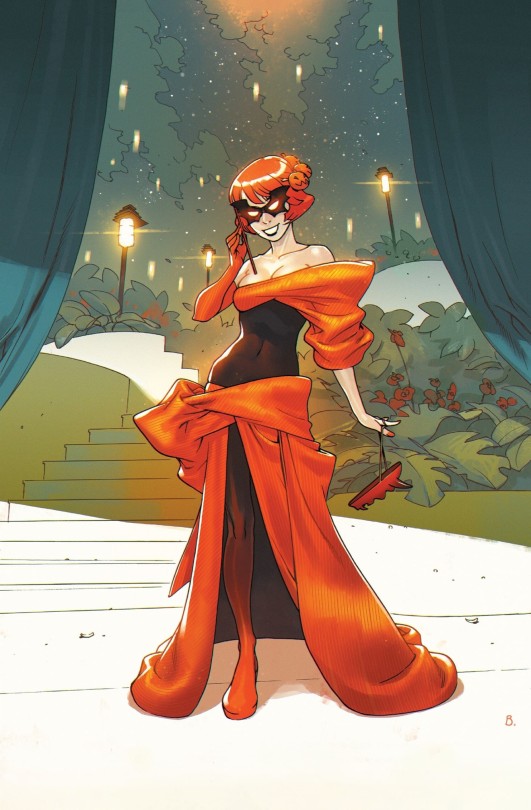
Hallow's Eve #5 (vol. 1, 2023) by Bengal
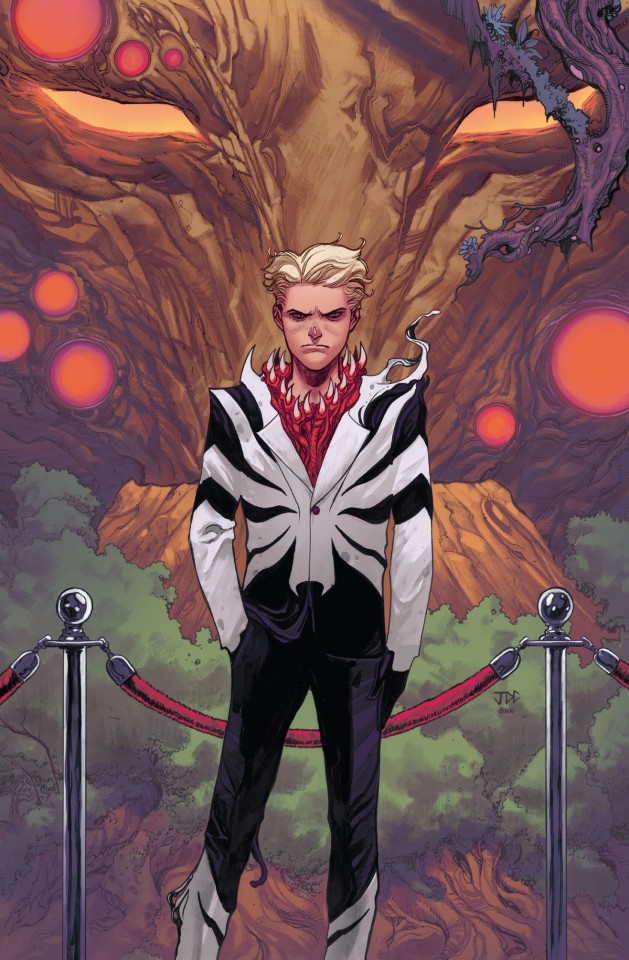
Venom #22 (vol. 5, 2023) by Joshua Cassara
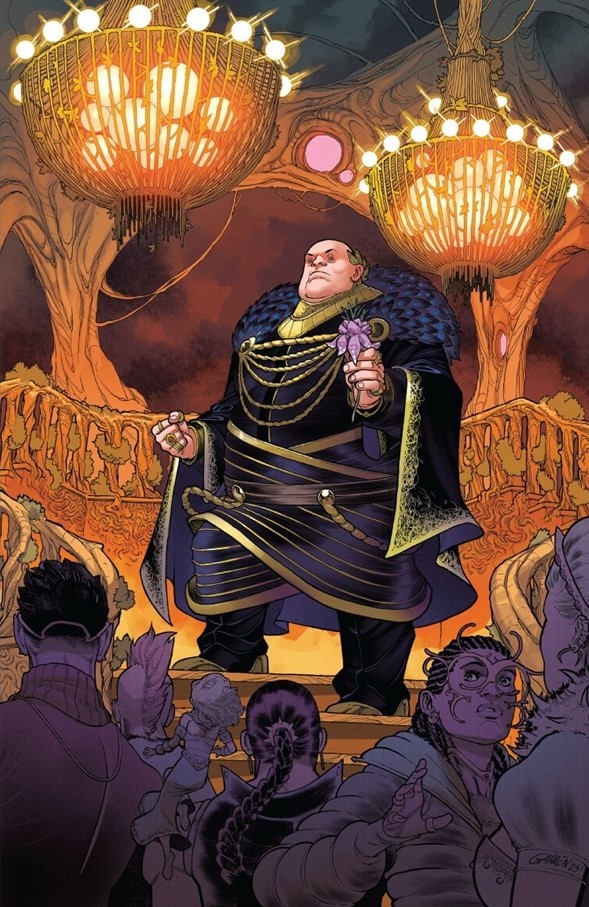
Daredevil #13 (vol. 7, 2023) by Javier Garrón
Avengers Hellfire Gala (2023) Cover Gallery
(open images for higher quality)
+bonus under the cut
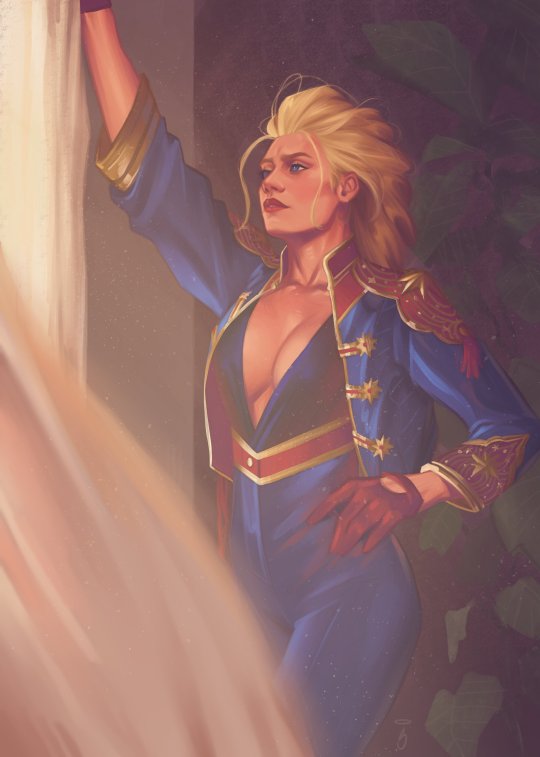
Stunning Captain Marvel piece by Angel Solorzano
#hellfire gala#avengers#hellfire gala 2023#captain america#falcon#sam wilson#thor odinson#thor#incredible hulk#the hulk#bruce banner#captain marvel#carol danvers#black panther#t'challa#scarlet witch#wanda maximoff#vision#moon knight#marc spector#hellcat#patsy walker#nova#richard rider#ghost rider#johnny blaze#spider-man#miles morales#black cat#felicia hardy
178 notes
·
View notes
Text
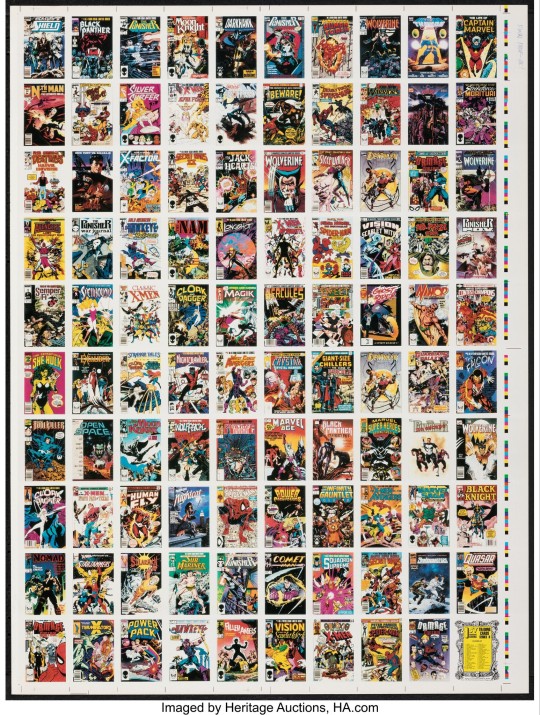

Vintage Trading Cards - Comic Images Marvel Comics First Covers Series II Uncut Sheet (Complete Base Set) - Final Proof (1991)
From ha.com...
There's nothing more iconic than the very first cover of a popular comic book series. That's exactly what's highlighted here! Offered in this lot is an uncut sheet from the 1991 Comic Images Marvel Comics First Covers II trading card set. The 100 cards in this set show the very first covers of popular Marvel comic series, such as Wolverine, Web of Spider-Man, Ghost Rider, The Life of Captain Marvel, The X-Men VS. The Avengers, and more.
This sheet contains 10 rows of 10, for a total of 100 cards.
Checklist: Complete Base Set
1 Beware
2 Giant-Size Chillers - Curse of Dracula
3 The Spectacular Spider-Man
4 The Human Fly
5 The Marvel No-Prize Book
6 Marvel Superhero - Contest of Champions (Limited Series)
7 Hercules (Limited Series)
8 Wolverine (Limited Series)
9 Vision and The Scarlet Witch (Limited Series)
10 The Uncanny X-Men at the State Fair of Texas
11 Marvel Age
12 Obnoxio the Clown vs. The X-Men
13 The Saga of Crystar - Crystal Warrior
14 Hawkeye (Limited Series)
15 Cloak & Dagger (Limited Series)
16 Marvel Tails - Starring Peter Porker - The Spectacular Spider-Ham
17 The Falcon (Limited Series)
18 Magik (Limited Series)
19 The Jack of Hearts (Limited Series)
20 The X-Men and the Micronauts
21 Secret Wars (Limited Series)
22 Power Pack
23 West Coast Avengers (Limited Series)
24 Machine Man (Limited Series)
25 Web of Spider-Man
26 Moon Knight
27 Cloak and Dagger
28 Secret Wars II (Limited Series)
29 The Life of Captain Marvel
30 Longshot (Limited Series)
31 Squadron Supreme (Limited Series)
32 The Vision and The Scarlet Witch (Limited Series)
33 Nightcrawler (Limited Series)
34 Marvel Saga - The Official History of the Marvel Universe
35 X-Men and Alpha Flight (Limited Series)
36 The Punisher (Limited Series)
37 X-Factor #1
38 Classic X-Men
39 Strikeforce: Morituri
40 The Nam
41 The Comet Man
42 Fallen Angels (Limited Series)
43 Strange Tales
44 The X-Men vs. The Avengers (Limited Series)
45 Silver Surfer
46 The Punisher
47 Solo Adventures Starring Hawkeye and Mockingbird
48 Marvel Comics Presents Wolverine
49 Spellbound (Limited Series)
50 Nick Fury vs. S.H.I.E.L.D.
51 Black Panther (Limited Series)
52 What the ?!
53 Wolfpack (Limited Series)
54 Excalibur
55 X-Terminators
56 The Saga of The Sub-Mariner (Limited Series)
57 The Punisher War Journal
58 Wolverine
59 Semper Fi'
60 Fred Hembeck Destroys the Marvel Universe
61 What If ...
62 Solarman
63 Damage Control (Limited Series)
64 The Sensational She-Hulk
65 Marc Spector - Moon Knight
66 Nth Man - The Ultimate Ninja
67 Nick Fury, Agent of S.H.I.E.L.D.
68 Power Pachyderms
69 The Wolverine Saga
70 Quasar
71 Shadow Masters (Limited Series)
72 The War
73 Damage Control (Limited Series)
74 Open Space
75 The Punisher: No Escape
76 The Thanos Quest
77 X-Men Spotlight On ... Starjammers (Limited Series)
78 Namor, The Sub-Mariner
79 The Saga of the Original Human Torch (Limited Series)
80 Ghost Rider
81 Marvel Superheroes - Spring Special
82 Black Knight (Limited Series)
83 Guardians of the Galaxy
84 Deathlok (Limited Series)
85 The New Warriors
86 The Punisher Armory
87 Spider-Man
88 Fool Killer (Limited Series)
89 Nomad
90 Black Panther: Panther's Prey (Limited Series)
91 Punisher P.O.V. (Limited Series)
92 Darkhawk
93 Nightcat
94 Sweet Sixteen
95 The Deadly Foes of Spider-Man (Limited Series)
96 Damage Control Vol. III
97 Sleepwalker
98 Deathlok
99 The Infinity Gauntlet (Limited Series)
100 Checklist
24 notes
·
View notes
Text
Rusted Moon Knight






Today I decide to post a more serious Issue of Moon Knight. This is MoonKnight Vol 9 #2 2021
26 notes
·
View notes
Text

Moon Knight Vol. 9 #14 (2017)
Jeff Lemire | Greg Smallwood
23 notes
·
View notes
Text


Moon Knight, Vol. 9 # 02 by Steve McNiven, with Colors by Frank G. D’Armata.
#Moon Knight#Steve McNiven#Frank G. D’Armata#Marvel Comics#Marvel#Cover Process#Process#Comics#Art#Illustration#Master Class
91 notes
·
View notes
Text
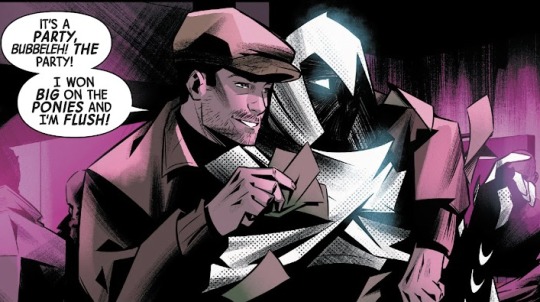
“Ill Met by Moonlight,” Moon Knight (Vol. 9/2021), #24.
Writer: Jed MacKay; Penciler and Inker: Federico Sabbatini; Colorist: Rachelle Rosenberg; Letterer: Cory Petit
#Marvel#Marvel comics#Marvel 616#Moon Knight vol. 9#Moon Knight 2021#Moon Knight comics#latest release#Moon Knight#Jake Lockley#Marc Spector#file under: panels that just mean a lot to me personally#I also love the touch of in Jake and Steven’s dreams you get some of that classic old comic book printing almost pointillism effect#you know? with the dots? you can see a bit of it on the Moon Knight cowl here#really affirms the whole sense of throwback
226 notes
·
View notes
Text




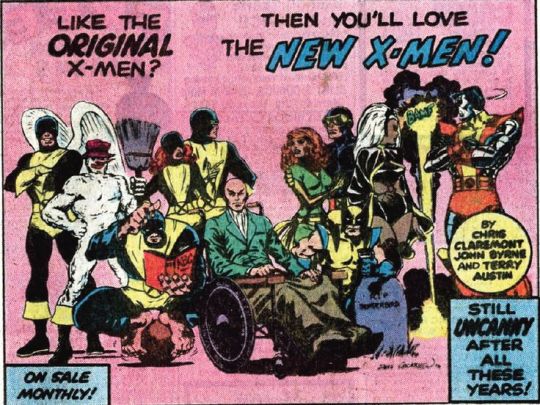





"ISSUE NUMBER ONE OF EACH ON SALE IN AUGUST!" -- PLUS MORE MIGHTY MARVEL MONTHLY MADNESS.
PIC(S) INFO: Mega spotlight on assorted, horizontal Marvel House ads from the 1970s, '80s, and '90s, featuring such monthly/bi-monthly titles as:
"Howard the Duck"
"Horror of Dracula"
"Conan the Barbarian" Vol. 1
"The Man-Thing"
"The Incredible Hulk" Vol. 1
"Moon Knight"
"Vision and the Scarlet Witch"
"Quasar"
The Punisher"
"The Punisher 2099"
"CABLE" Vol. 1
Source: https://forum.sanctuary.fr/t/page-s-de-pub/185608/214?page=9, 13th Dimension (blogspot), various, etc...
#Marvel House Ads#Marvel Universe#Marvel#Bronze Age of Comics#House Ads#70s Marvel#Conan the Barbarian#Super Seventies#Horror of Dracula#Sci-fi Fri#Sci-fi/horror#The Wolverine 1974#Comics#Quasar#Moon Knight#Advertisements#Dracula#The Punisher#Punisher 2099#Marvel Comics#Vision#Scarlet Witch#Conan#CABLE Vol. 1#X-Universe#Punisher: War Journal#Adverts#Black Widow#Quasar Marvel#Wolverine
15 notes
·
View notes
Text




2021's Moon Knight Vol.9 #2 (LGY : #202) cover by Steve McNiven & Frank D'Armata.
#Moon Knight#Steve McNiven#cool cover art#marvel comics#marvel#comics#art#cover#cool comic art#fist of khonshu#jed mackay#2020s comics#mr knight#midnight mission#vigilante#superhero#comic books#process#comic book art#comic art#2020s comic books#Jed Mackay's moon knight run#cool art#woah#comic covers#cover art#marc spector#great comic cover#cool comic cover#moon knight comics
98 notes
·
View notes
Text
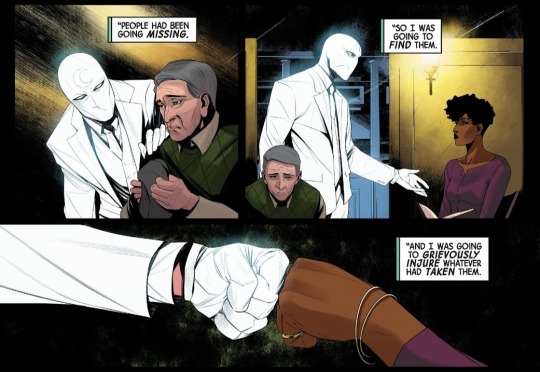
🤜 grievously injure whatever had taken them 🤛
Moon Knight Vol.9
#moon knight#moonknight#marc Spector#mr. knight#moon knight reese#midnight mission#moon knight comics#moon knight comic#moon knight 2021#moon knight 2023#moon knight 2022 comic#funny moon knight#moon knight funny#marvel comics#marvel panels#moon knight panels#comic panels#marvel comic
294 notes
·
View notes
Text
how to watch MCU in chronological order (excluding agents of shield and the netflix/not netflix anymore shows):
1. Captain America: The First Avenger (2011)
2. Agent Carter seasons 1 & 2 (2015)
3. Captain Marvel (2019)
4. Iron Man (2008)
5. Iron Man 2 (2010)
6. The Incredible Hulk (2008)
7. Thor (2011)
8. The Avengers (2012)
9. Thor: The Dark World (2013)
10. Iron Man 3 (2013)
11. Captain America: The Winter Soldier (2014)
12. Guardians of the Galaxy (2014)
13. Guardians of the Galaxy vol 2 (2017)
14. Avengers: Age of Ultron (2015)
15. Ant-Man (2015)
16. Captain America: Civil War (2016)
17. Black Widow (2021)
18. Doctor Strange (2016)
19. Spider-Man: Homecoming (2017)
20. Thor: Ragnarok (2017)
21. Black Panther (2018)
22. Ant-Man and the Wasp (2018)
23. Venom (2018)
24. Avengers: Infinity War (2018)
25. Avengers: Endgame (2019)
26. Loki seasons 1 & 2
27. What if? season 1 & 2
28. WandaVision (2021)
29. Shang-Chi and the Legend of the Ten Rings (2021)
30. The Falcon and the Winter Soldier (2021)
31. Eternals (2021)
32. Venom: Let There Be Carnage (2021)
33. Spider-Man: Far From Home (2019)
34. Spider-Man: No Way Home (2021)
35. Doctor Strange in the Multiverse of Madness (2022)
36. hawkeye (2021)
37. Moon Knight (2022)
38. Black Panther: Wakanda Forever (2022)
39. Morbius (2022)
40. Echo season 1
41. She-Hulk: Attorney at Law (2022)
42. Ms Marvel (2022)
43. Thor: Love and Thunder (2022)
44. Werewolf by Midnight (2022)
45. Ant-Man and the Wasp: Quantumania (2023)
46. Guardians of the Galaxy vol 3 (2023)
47. Secret Invasion (2023)
48. The Marvels (2023)
49. Madam Web (2024)
50. Venom: The Last Dance (2024)
7 notes
·
View notes
Text

MOON KNIGHT VOL 9 #7 (COVER ART BY CORY SMITH)
72 notes
·
View notes
Text
The Great CLAMP Re-Read Part 10: Magic Knight Rayearth
Part 1 (RG Veda) | Part 2 (Man of Many Faces) | Part 3 (Tokyo Babylon) | Part 4 (Duklyon) | Part 5 (Clamp Detectives)| Part 6 (Shirahime)| Part 7 (X)| Part 8 (Chunhyang)|Part 9 (Miyuki-chan)| Part 11 (The One I Love)
In 1991, Sailor Moon was launched in the magazine Nakayoshi, aimed at younger girls. It kicked off an era of fantasy and magical girl-oriented manga, and CLAMP were scouted to publish their own in Nakayoshi. Rayearth is very dear to me as my very first CLAMP story, as the anime aired in my country in my kindergarten years. Released in two parts, Part 1 ran from 1993 to 1995 in 3 volumes, followed by Part 2 from 1995 to 1996, again in 3 volumes. It spawned a two season anime, an OVA, multiple video games, a forthcoming new anime, and countless merch. I purchased the 25th anniversary release, a lovely hardcover version that allowed me to appreciate and reflect on a childhood love as an adult.
I've discussed how X ended CLAMP's 90s run, both in art style and thematic content, but I do think Magic Knight Rayearth was the beginning of that end. The mega-hit cemented their rising star, and proved that CLAMP's favourite themes could be meaningfully applied to a younger audience they'd never reached before. While Rayearth does not entirely stick the landing, it cannot be overstated its impact on the magical girl genre as it deconstructs and reconstructs ideas of girlish purity, innocence, and power systems in a thematically brilliant combination of philosophy, fantasy, and video game tropes. Some imagery from Rayearth has remained with me forever, a testament to its emotional impact. Heavy spoilers!
Synopsis: Three colour-coded Tokyo middle schoolers are summoned to the world of Cefiro, where the strength of your heart's will can shape yourself and the world. Princess Emeraude is Cefiro's Pillar, spending all her days praying for Cefiro's peace. But the priest Zagato has kidnapped Emeraude, and Cefiro is crumbling. The trio, revealed to be the Magic Knights of legend, must journey and level-up, video-game style, to unlock the mashin and save Cefiro. But all is not as it seems about Emeraude's kidnapping - and should the happiness of a world rely on the prayers of one single girl? Who will pray for that girl's happiness? Can such a world be truly beautiful?
The Story: Initially, Magic Knight Rayearth feels charming but a bit rote - especially in 2024, with a glut of bad isekai out there. Cefiro isn't a terribly fully-realised world and we never meet its ordinary citizens - though the pace means we don't really notice. Hikaru and Emeraude embody the classic pure-hearted shojo, who valiantly fight against the evil adult sexuality the likes of Alcyone and Zagato. Yet, the rote nature of the girls' fantasy video-game quest is precisely part of Part 1's entire deception: Princess Emeraude is not a child, but an adult woman trapped in the confines of the Pillar System that demands she remain a sexless little girl and pray for the happiness of others, instead of her own. The Magic Knights exist to kill the Pillar, following their pre-scripted roles to the one of the most haunting moments in manga where they have no choice but to kill Emeraude.
Its such a brilliant deconstruction of magical girl tropes that usually valorize girlish innocence, where everything can be overcome by the purity of one's heart, and fantasy RPGs, of a perfect princess and an evil dragon. The Magic Knights never consider Emeraude's humanity or free will, only her relation to her society, playing the video game only to realise the entire system is broken and at its heart, Omelas-style, lies a suffering child. Its bone-chilling as the girls celebrate that they've saved Cefiro by killing Zagato, unaware Emeraude is losing her mind. Its not to say Part 1 doesn't have some structural narrative issues: its pacing, while relentless (I could not stop reading Vol 3 in particular) can feel uneven (the Forest drags, while Ascot's turn is too fast and cheesy), the prat falls get tedious as an adult reader, and its meta-narrative of formula to critique formula is better understood on second readings. Still, I loved so much of what Part 1 ambitiously tries to do on a thematic and structural level and it is a gripping read.
Part 2, CLAMP admits, was written very quickly because it was not expected to happen - and personally, I think Part 1 is much stronger than Part 2. Part 2 tries to meaningfully address the trauma the girls have experienced ("the weapons I made became instruments for your suffering" from Presea was one I had to write down), but it does gloss over the culpability and tragedy of Part 1 - I hated that Emeraude was happy in death to placate the girls. A lot of stuff feels retconned in, and the lack of driving narrative means the story treads water in unnecessarily long bits with Fahren and Chizeta and the Magic Knights are mostly reactive. I also cannot take god Mokona seriously.
Still, I enjoyed Part 2 for the strong arcs of characters like Eagle, Hikaru, and Umi, and the conversations about whether a world built on the suffering of another can really be beautiful. Despite how silly god Mokona is, I do think the ending is a fantastic answer to Part 1: the only way to save Cefiro is to break the entire system and rebuild it again where everyone must, together, make society worth living in. Hikaru becomes the new Pillar not because of her purity - indeed that self-sacrificing Christ-like behaviour is what gets Emeraude in trouble in the first place - but because of her earthly refusal to accept anyone else sacrificing themselves for others AND her belief that we have to trust and try to make society better. It's a very mature look at empathy and compassion and individual vs. collective happiness, handled for children to understand, and its lush, badass, and emotional to watch Hikaru save Eagle in the process. Yes, its cheesy and sloppily paced (it is for 12 year olds and I do have to remind myself of that), but damn if it didn't move me. As I keep saying, CLAMP has never written a character I've loathed!
Despite its inconsistent quality, I do think it is good to read both Parts 1 and 2 for how they overall deconstruct and reconstruct magical girl manga in a way that moves away from rote roles of purity and self-sacrifice that bog down the genre, in a story that is overall fun and deeply emotional.
The Themes: I can absolutely see how Rayearth was written concurrently with X (Mokona tossing aside Earth for its corruption). But these same themes of what makes life, and the world, worth living, are taken in fascinating new ways. Here, CLAMP's favourite concept of "destiny vs. free will" explores destiny not as a divine system but a societal enforced structure. Emeraude believes she's fated to only pray and thus her loving Zagato destroys everything, but this is the result of her accepting that the system is infallible and unchangeable. She is the Christ-figure maiden trapped in the world tree to support it, but who needs redemption not from the divine Eagle, but the earthly Hikaru, who teaches self-love. Nobody in Cefiro (or beyond) can conceptualize a Pillar-less world. The people of Cefiro accept the game's logic and play it, but - as CLAMP loves to remind - we are individuals and our choices have meaning and power.
And this leads to a really interesting theme of whether peace bought too dearly is even worth it - is collective happiness more important than individual happiness? Happiness, CLAMP does remind us, is different for every person, but comes out on the side that individual suffering suffuses the whole system. Self-sacrifice - like in X! - does nothing but lead to suffering from the people who love you and holds no glory. And who can't love a story that tells little children that we have to find a way to live that allows us all to be happy?
There's also a really interesting gender dynamic that I rarely see discussed by fans that I find fascinating. Shojo is infused with pure-hearted innocent heroines who face off against "phallic mothers", that is, adult women who embody sexuality and power in contrast to acceptable female roles (there's a lot of very interesting discussion on whether shojo is actually feminist that I feel bypasses Western audiences). At first, Rayearth seems to follow these tropes - the girls and Emeraude are shojos, while characters like Alcyone (a sexually mature woman who is characterized as evil for loving Zagato when he doesn't love her) are phallic mothers.
Yet the finale twists this - Emeraude is another phallic mother whose "selfish" love for Zagato has transformed her into an adult woman that must be killed. And killed she is, as shojo tropes demand, but no happy ending comes. Emeraude was not selfish, but human, and failed by a system that demanded this of her. Part 2 never lives up to the potential set up by Part 1 - Hikaru remains a shojo who can't recognize Lantis is confessing to her - but it was something I really enjoyed chewing over in Part 1.
The Characters: While the girls might seem typical at the start, CLAMP has a real charm for making cliche work for them. Fuu is much quirkier than the shy meganekko trope, and Umi. Umi was the stand-out for me as the most dynamic of the bunch, with such a wonderful character arc across all 6 volumes from bratty rich girl to compassionate, brave warrior. It is she who recognizes the world isn't beautiful and her own naivete, she who finds inspiration from her friends to like herself more, she who grows up! The supporting cast is equally charming, and I loved the tragedy of Emeraude and Zagato.
While Lantis is a fine Yasha-style giant guy, I really adored Eagle by the end and his relation to Hikaru and Emeraude. Hikaru is s a highly static character, but her deep self-love and determination are impossible not to love. There's something just so compelling about his mirror of Emeraude and especially Hikaru, who frees them both by absolving them of their self-denying divinity. Their entire arc is a beautiful reaffirmation that we are humans who deserve to live and find meaning in that. I would say the character I cared for the least was probably Ferio, who never shows either comedic charm (Caldina, Ascot) or inner depth. But he appears so minimally that I can wave aside that he's a boring, paper-thin love interest.
The Art: I'm in two minds when it comes to Rayearth. There are some truly stunning moments in the artwork and visual motifs. The very idea of making an Art Nouveau magical girls in a fantasy RPG world led to so many incredible creative design choices (though Hikaru's skirt in her final armour bothers me. Metal and fabric don't fall like that). The silent two page spread where the girls murder Emeraude will likely haunt me for the rest of my life. Emeraude's hair pearls transforming into her crystallized tears is such a brilliant twist on the established visual motif. There's a lot of highly inventive panelwork that lushly moves between the real world and contemplative spaces.
On the other hand, because Cefiro is not the real world, CLAMP could not use their trick of scanned photo backgrounds. The result is a distinctive lack of backgrounds that were especially frustrating because I felt like I had no idea what these fantasy spaces look like - and RG Veda never had this problem! There's one particular hand-drawn Tokyo background that looks horrendous in how sketchy it is. Rayearth definitely reflects CLAMP's burnout period in that there are definitely more corners cut, like with the constant chibi scenes (very classically 90s, but not something I've ever enjoyed) and heavy use of screentone to mask lack of background. It's still visually stunning, but it's definitely not their drawing peak. Would I still frame some of these pages? Absolutely.
Questionable Elements: Presea makes an off-colour Native American joke. The designs of the Chizeta and Fahren characters lean heavily into cultural stereotyping of the "Orient" - they at least are real characters in the story, but they really irritated me for quite a long time in the story because of how glaring this is. Especially when Aska says white-ish, blue eyed blonde Emeraude is a "true princess". It makes the epilogue's (very good) moral of "we were all made different so we can learn from one another" fall a bit flat if CLAMP themselves made no effort to actually learn from people unlike them.
Overall: While Part 2 of Rayearth never quite lives up to the potential set by Part 1, the entire series overall is such a refreshing take on the magical girl genre, even 30 years on. Its meta-narrative and postmodern reflections on the genre and its blend of magical girl tropes, philosophy, fantasy and JRPGs, and unique and timeless visual influences has led to a series that has withstood the test of time - and many of its peers that similarly attempted to be the "next Sailor Moon". I think, unlike them, Magic Knight Rayearth has such a strong CLAMP fingerprint upon it - it is their humanist and occult-flavoured take upon the genre, and for that it affirms the value of individual human life, each one, and our choices, in being necessary to create a society that will last, not divine action.
It is a story about stories, making it fascinatingly ahead of the curve. And while its child audience means that it lacks subtlety and nuance in many ways (and frankly Nanase Ohkawa has the subtlety of a brick in her writing in general), I can't deny how much it has remained with me all these years and I find something new to love in it each time. It warrants being one of CLAMP's hits for these reasons, by taking apart the genre set up by Sailor Moon to say it is not pure-hearted divine princesses who will save the world, but our selfish human love that will fight off entropy, every time.
9 notes
·
View notes
Text
Appendix: Acts of Vengeance, Marvel Event (the issue list was taken from Marvel Fandom)
Loki, in disguise, helped the Prime Movers (Dr Doom, Kingpin, Magneto, Mandarin, and Red Skull) to come up with a plan to switch up their foes and try to change the dynamic by attacking someone else.
Alpha Flight Alpha Flight #79, Alpha Flight #80
Amazing Spider-Man Amazing Spider-Man #326, Amazing Spider-Man #327, Amazing Spider-Man #328 and Amazing Spider-Man #329 (aftermath).
Avengers Avengers #311, Avengers #312, Avengers #313, and Avengers Annual #19 (aftermath).
Avengers West Coast Avengers: West Coast #53, Avengers: West Coast #54, and Avengers: West Coast #55
Avengers Spotlight Avengers Spotlight #26, Avengers Spotlight #27, Avengers Spotlight #28, and Avengers Spotlight #29
Captain America Captain America #365, Captain America #366, and Captain America #367
Cloak and Dagger Mutant Misadventures of Cloak and Dagger #8 (prelude), Mutant Misadventures of Cloak and Dagger #9
Damage Control Damage Control (Vol. 2) #1, Damage Control (Vol. 2) #2, Damage Control (Vol. 2) #3, Damage Control (Vol. 2) #4
Daredevil Daredevil #275, Daredevil #276.
Doctor Strange: Sorcerer Supreme Doctor Strange, Sorcerer Supreme #11, Doctor Strange, Sorcerer Supreme #12, Doctor Strange, Sorcerer Supreme #13.
Fantastic Four Fantastic Four #334, Fantastic Four #335, Fantastic Four #336.
Incredible Hulk Incredible Hulk #363
Iron Man Iron Man #251, and Iron Man #252.
Marc Spector: Moon Knight Marc Spector: Moon Knight #8, Marc Spector: Moon Knight #9, Marc Spector: Moon Knight #10.
New Mutants New Mutants #84, New Mutants #85, New Mutants #86.
Power Pack Power Pack #53.
Punisher Punisher (Vol. 2) #28, Punisher (Vol. 2) #29
Punisher War Journal Punisher War Journal #12, Punisher War Journal #13.
Quasar Quasar #5, Quasar #6.
Spectacular Spider-Man Spectacular Spider-Man #158, Spectacular Spider-Man #159, Spectacular Spider-Man #160.
Thor Mighty Thor #410 (prelude), Mighty Thor #411, Mighty Thor #412.
Uncanny X-Men Uncanny X-Men #256, Uncanny X-Men #257, Uncanny X-Men #258.
Web of Spider-Man' Web of Spider-Man #59, Web of Spider-Man #60, Web of Spider-Man #61, Web of Spider-Man #64, Web of Spider-Man #65.
Wolverine Wolverine (Vol. 2) #19, Wolverine (Vol. 2) #20
X-Factor X-Factor #50.
It was also riffed on and explored with
What The...?! What The--?! #6 "Smacks of Vengeance"
What If..? What If...? #31 "What if Spider-Man had kept his cosmic powers"
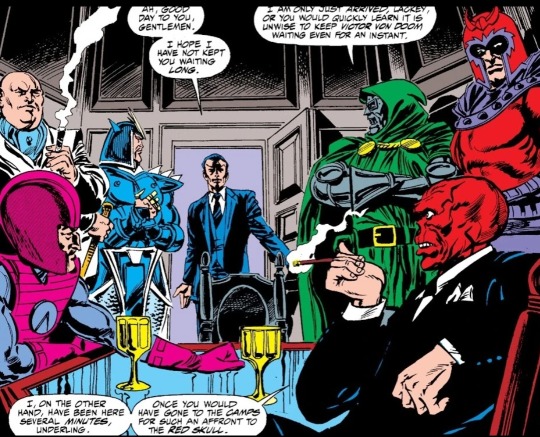
#nerds yearbook#real life event#comic book#marvel#marvel comics#january#1990#acts of vengeance#cross over#loki#prime movers#dr doom#doctor doom#kingpin#magneto#mandarin#red skull#alpha flight#spiderman#spider man#avengers#the avengers#avengers west coast#west coast avengers#avengers spotlight#captain america#cloak and dagger#cloak & dagger#damage control#daredevil
6 notes
·
View notes